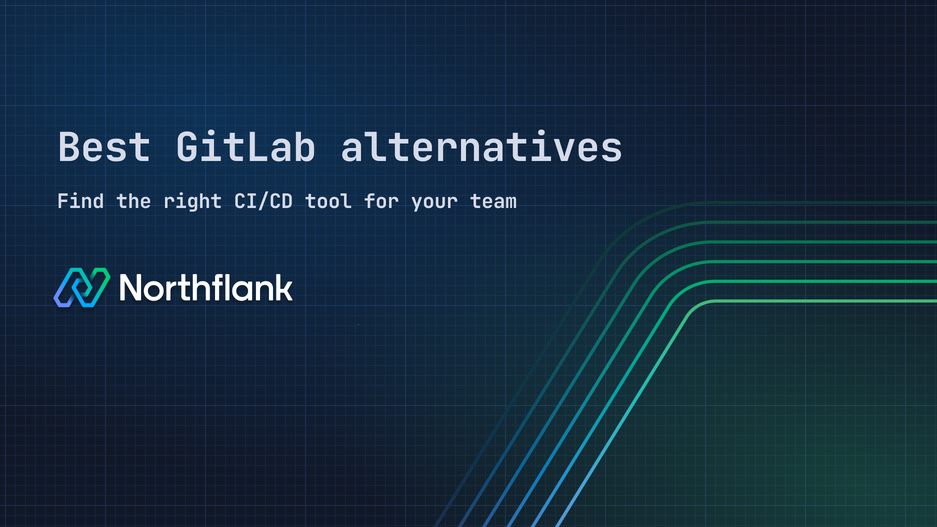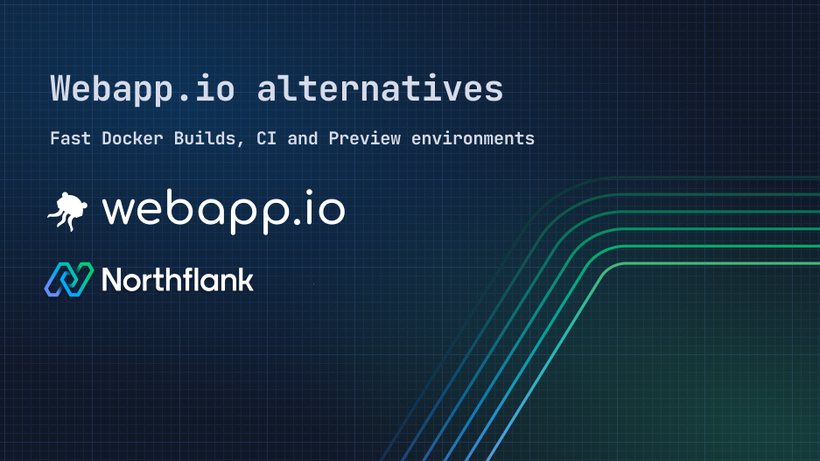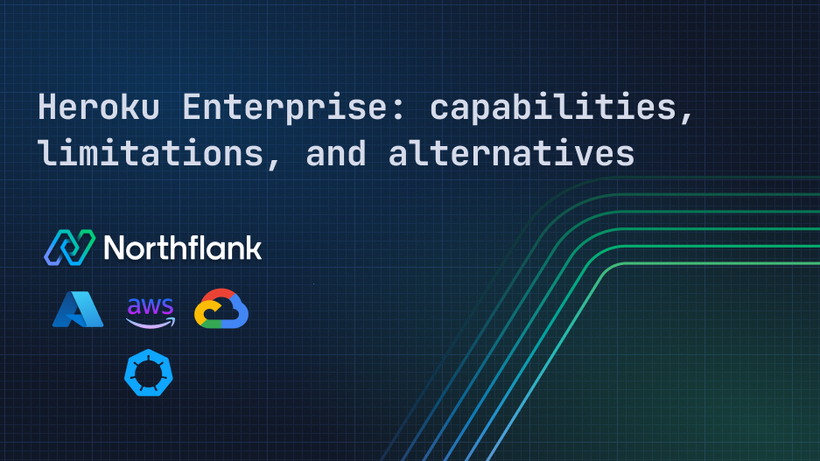

9 Best GitLab alternatives for CI/CD in 2026
Let’s be honest — GitLab is a fantastic platform. It’s packed with features, offers built-in CI/CD, and does a good job of handling everything from code hosting to deployments. But like with any tool, it won’t be the perfect fit for every project or team. Maybe the pricing doesn’t scale well for your needs, the UX feels clunky, or you’re just after something more modern, cloud-native, or developer-friendly.
I’ve been there myself — juggling multiple tools, chasing better pipelines, and dreaming of that one platform that gets out of the way and lets me ship code faster. So, whether you're scaling up, tightening budgets, or just curious, it’s worth exploring what's out there in 2026.
If you don’t have time to dive deep, here’s a quick comparison of how GitLab stacks up against other CI/CD alternatives in the areas that matter most:
| Platform | CI/CD built-in | Source hosting | Cloud-native / Kubernetes | Developer experience | Pricing model | Best suited for |
|---|---|---|---|---|---|---|
| GitLab | Yes | Yes | Partial | Moderate | Tiered / Per-user | Teams needing an all-in-one DevOps suite |
| Northflank | Yes (native) | External (GitHub, GitLab, Bitbucket) | Full support (built-in) | Excellent | Usage-based | Modern DevOps, fast CI/CD & cloud-native apps |
| GitHub Actions | Yes | GitHub only | Limited | Good | Free + usage-based | Teams already using GitHub |
| Bitbucket Pipelines | Yes | Bitbucket only | Limited | Basic | Tiered (pipeline minutes) | Atlassian stack users |
| CircleCI | Yes | External (GitHub, Bitbucket) | Partial | Good | Usage-based | Teams needing flexible, performant CI |
| Jenkins X | Yes | External | Full (K8s-native) | Complex | Open-source | Kubernetes-native CI/CD workflows |
| Buddy | Yes (visual) | External | Partial | User-friendly | Tiered | Visual CI/CD, smaller teams |
| Buildkite | Yes | External | Customizable | DevOps-heavy | Self-hosted pricing | Security-conscious, enterprise teams |
| Codefresh | Yes | External | Full (K8s optimized) | Good | Tiered (K8s-centric) | GitOps, Helm, and cloud-native teams |
| Harness | Yes | External | Full | Enterprise-grade | Enterprise pricing | Governance, compliance, and progressive delivery |
GitLab is one of the most popular DevOps platforms out there — and for good reason. It combines source code management, issue tracking, CI/CD, and even container registry support under one roof. But despite its strengths, it’s not the perfect tool for every team, project, or workflow. There are a few valid, practical reasons developers and engineering teams start exploring alternatives:
GitLab has a generous free tier for individuals and small projects, but as your team scales or you start relying on premium features like advanced CI/CD runners, security scanning, and priority support, the pricing can climb fast. For growing startups or projects with fluctuating team sizes, these costs can become hard to justify.
While GitLab offers an impressive all-in-one platform, that breadth can come with a learning curve and operational overhead. For small to mid-sized teams that don’t need every enterprise feature, GitLab can start to feel bloated, with features getting in the way rather than making things easier.
As repositories grow and CI/CD pipelines become more demanding, some teams report performance slowdowns in GitLab — both in the UI and during pipeline executions. If you’ve ever watched a build queue crawl during peak hours, you know how frustrating this can be.
The landscape has shifted towards cloud-native tools, GitOps workflows, and containerized infrastructure. Platforms designed from the ground up with these concepts in mind tend to offer faster, lighter, and more integrated experiences compared to monolithic systems like GitLab.
Sometimes you don’t need an all-in-one solution. You might already have GitHub for code hosting, Jira for project management, and Terraform for infrastructure as code. In those cases, a purpose-built CI/CD and deployment platform like Northflank might serve your workflow better.
If you’re considering making a move, it’s important to evaluate alternatives based on what matters to your team and projects — not just what’s popular. Here’s a breakdown of the key criteria to focus on when comparing options:
At the heart of most DevOps workflows is the pipeline. Look for platforms that offer:
- Fast, reliable builds and deployments
- Configurable workflows (through visual editors or YAML)
- Container-native support (Docker, Kubernetes, Helm)
- Pipeline parallelization and caching for speed optimization
If you're replacing GitLab entirely, make sure the platform supports:
- Git hosting and branching models
- Merge requests (PRs), code reviews, and approvals
- Integration with third-party tools for issue tracking and CI/CD
Some alternatives like GitHub and Bitbucket handle this well, while others like Northflank integrate seamlessly with external Git providers.
You’ll spend a lot of time inside this tool, so it needs to:
- Have an intuitive, clean, responsive UI
- Provide clear, actionable logs and error reporting
- Offer good documentation, API access, and CLI support
- Not get in your way — let you focus on writing and shipping code, not wrestling with configs
If your infrastructure is containerized or Kubernetes-based (and it probably should be in 2026), look for:
- First-class container support
- Built-in Kubernetes deployments
- Managed infrastructure options or seamless cloud provider integrations
- Support for GitOps and declarative infrastructure setups
This is where modern platforms like Northflank really shine — providing native, managed Kubernetes environments without overwhelming complexity.
As your project or team grows:
- Can the platform scale with you?
- Are pricing models clear and predictable?
- Do you pay for what you use, or get locked into rigid pricing tiers?
Northflank, for example, offers usage-based pricing that scales naturally, while other platforms might impose expensive per-user or per-runner fees.
Modern development workflows rely on a whole stack of tools. Make sure your CI/CD platform integrates smoothly with:
- Version control providers (GitHub, Bitbucket, etc.)
- Container registries (Docker Hub, GitHub Container Registry, etc.)
- Infrastructure tools (Terraform, Pulumi, Ansible)
- Notification tools (Slack, Discord, email)
- Monitoring and observability tools (Prometheus, Grafana, Datadog)
For larger projects or production systems:
- Look for built-in vulnerability scanning, secrets management, and audit logging
- Ensure support for secure pipeline execution (isolated runners, private networking)
- Consider compliance standards like SOC 2, ISO 27001, or GDPR if applicable
No tool is perfect — so when things break (and they will), you want:
- Responsive, knowledgeable support
- An active, helpful community
- Detailed documentation and troubleshooting guides
Okay, full disclosure — this is the one I personally recommend most often these days. Northflank is a modern CI/CD and deployment platform built for developers who prefer speed, simplicity, and cloud-native workflows.
It lets you build, deploy, and scale services directly from your Git repositories (GitHub, GitLab, Bitbucket, etc.) with beautifully integrated pipelines, containerized deployments, and Kubernetes under the hood — without making you touch YAML files for days.

Why it's a great GitLab alternative:
- Built-in CI/CD and deployment — no extra plugins, no brittle configs.
- Managed infrastructure — deploy to managed containers on scalable infrastructure without leaving the dashboard.
- Great DX — clean interface, clear logs, easy rollback, and environment previews.
- Cloud-native by default — containerized services, databases, cron jobs, and APIs, all under one roof.
If GitLab feels heavy and you're craving something sleek, fast, and purpose-built for modern DevOps, Northflank deserves a look.
GitHub Actions has quietly grown into one of the best CI/CD options out there — especially if you're already hosting code on GitHub. It integrates directly with your repositories, offers a massive library of pre-built actions, and handles everything from testing to deployment.

Why it’s a good pick:
- Native integration with GitHub.
- Flexible workflows and matrix builds.
- Massive community of actions and templates.
If you're using Bitbucket for source control, Pipelines is a natural next step. It's Bitbucket’s native CI/CD tool, offering YAML-configured pipelines that run on Atlassian’s infrastructure.

Pros:
- Tight integration with Bitbucket repos.
- Simple pricing and built-in pipeline minutes.
- Good for teams already in the Atlassian ecosystem.
CircleCI is a popular, cloud-hosted CI/CD service known for its speed and simplicity. It’s highly customizable and works with GitHub and Bitbucket.

Highlights:
- Optimized performance with parallelism and caching.
- Custom Docker images and machine executors.
- Great analytics and insights on builds and deployments.
Not to be confused with classic Jenkins, Jenkins X is designed for Kubernetes-native CI/CD. It automates CI/CD pipelines for cloud-native applications, leveraging GitOps workflows.

Good for:
- Kubernetes-first teams.
- Cloud-native apps using Docker, Helm, and K8s deployments.
- GitOps automation fans.
Buddy is an intuitive, visual CI/CD platform aimed at developers who prefer drag-and-drop simplicity. It integrates with popular Git services and supports container builds, deployments, and testing.

Perks:
- Clean, visual pipeline builder.
- Fast builds with smart caching.
- Pre-built actions for common workflows.
Buildkite offers hybrid CI/CD — you manage the infrastructure, and they handle the orchestration. It’s highly scalable and flexible, often favored by larger teams with security and compliance requirements.

Why it stands out:
- Runs on your own infrastructure (including behind firewalls).
- Scales to thousands of parallel agents.
- Great for complex or self-hosted environments.
Codefresh is a powerful CI/CD platform optimized for Kubernetes and Docker workflows. It’s feature-rich, offering GitOps integrations, Helm charts, and Kubernetes dashboards.

Best for:
- Cloud-native, containerized applications.
- Teams using GitOps and Helm.
- Kubernetes-focused projects.
Harness is a powerful DevOps platform designed for teams that need robust delivery pipelines, governance, and visibility. It brings AI and automation into CI/CD, aiming to simplify deployment processes while optimizing for efficiency and cost.

Best for:
- Large teams or orgs that need governance, compliance, and advanced deployment strategies.
- Engineering teams that want AI-powered insights into pipeline performance and cloud usage.
- Companies practicing progressive delivery or canary deployments.
GitLab is solid — no denying it. But it’s not a one-size-fits-all solution. Whether you’re after faster pipelines, simpler deployments, better pricing, or a more cloud-native experience, there’s no shortage of great alternatives in 2026.
If you’re especially looking for a platform that makes CI/CD and deployments genuinely painless without sacrificing power, Northflank is seriously worth trying. I’ve been impressed with how clean, fast, and developer-friendly it is compared to some of the old-school options out there.
Ultimately, the “best” alternative depends on your stack, your team’s preferences, and your workflow. Hopefully, this list helps narrow it down.
Curious to see what a smoother DevOps setup feels like? Give Northflank a try — it's built for speed, simplicity, and scaling modern workflows without the usual friction.


